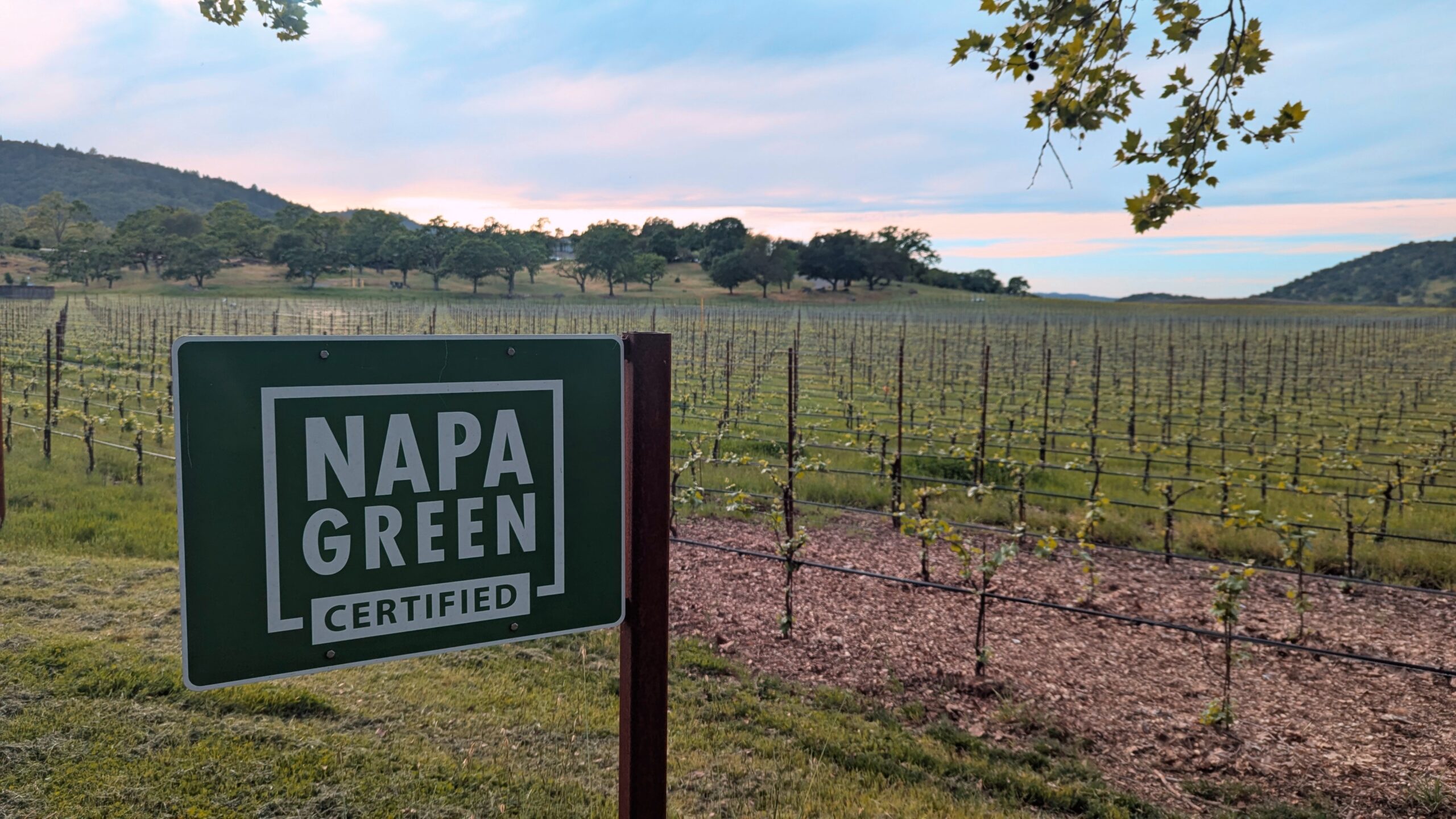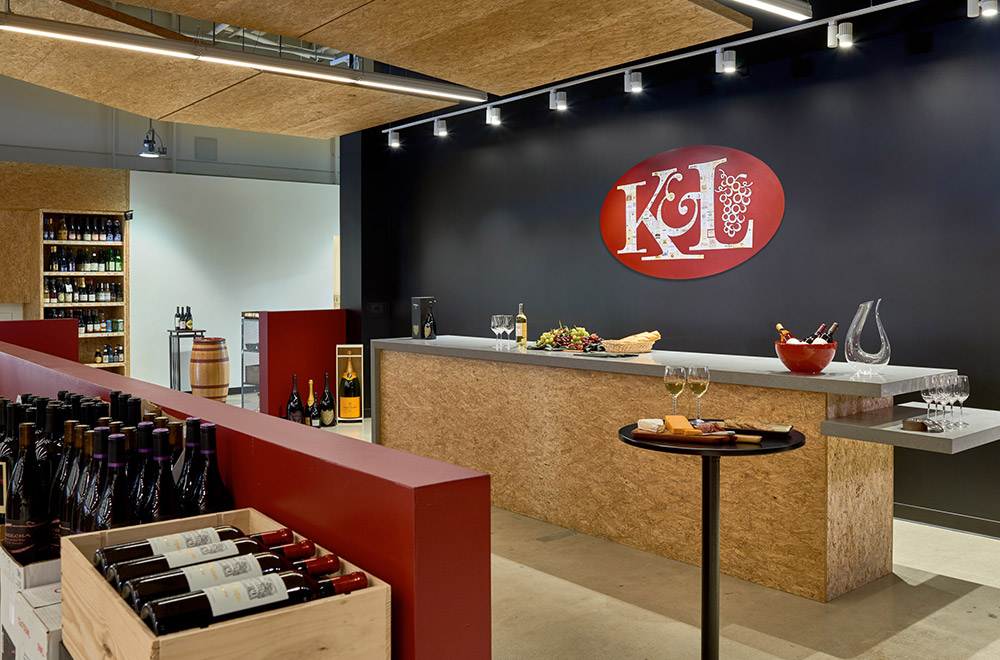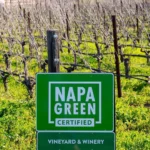WEED MANAGEMENT TOOLKIT
Napa Green is the first sustainable winegrowing certification globally to require the phaseout of Roundup, and ultimately synthetic herbicides. When we looked for a roadmap and resources for going herbicide-free we didn’t find it all in one place, so we created this Weed Management Toolkit to support our Napa Green community and other perennial growers looking to cultivate healthier soils and regenerative farm systems.
Since Napa Green became an independent nonprofit in 2019, our goal has been to set the highest bar for sustainability and climate action in the wine industry. Our next-level Napa Green Vineyard program, launched in 2021, is unique in its whole-systems focus on: Social Justice, Regenerative Ag & Soil Health, Irrigation Efficiency, Forest Health, Climate-smart burning/alternatives, and Pesticides.
While pesticide and herbicide use is just one element of a holistic approach to sustainable winegrowing and climate action leadership, this leadership matters to our families, our communities, and our customers. As a world-renowned winegrowing region, producing the premier agricultural product, we must leverage our powerful leadership platform to galvanize change locally and globally.
Message from Executive Director
Case Studies: the how and costs of herbicide-free
Weed management tools
Clemens Weed Knife
Pros: Lower soil disturbance, no soil inversion. High ground speed. The frame can also support a ‘twister’ type mower for a pre-knife pass, or a french plow for deeper disturbance. Single- or double-sided.
Cons: Low level of disturbance means weeds can re-sprout depending on timing and soil moisture. Not great with heavy weed cover. Can either be one sided (lower efficency) or, on flat ground, can have a second side, but might require multiple passes.
Sheep
Pros: Ability to manage the entire vineyard floor, even steep, terraced, and tight rows, without fossil fuels. Increased nutrient cycling, as well as soil and vine health.
Cons: Require knowledgeable shepherds to be managed/rotated effectively. Small parcels are inefficient. Damage to vines and infrastructure is possible.
Organic (OMRI) Herbicides
Pros: Helpful as a foliar spray when the soil is too wet to cultivate. Reduces weed competition in unfavorable conditions
Cons: Organic herbicides do not match the effectiveness of synthetic herbicides, but are another tool in the weed management kit. They are ineffective once weeds have fully established root systems and can be expensive.
Note that feedback is assembled from members who have used these tools.
events and workshops
The Napa Green Vineyard certification provides growers a beneficial roadmap for continual improvement. The process lead Dominus Estate to measure our environmental impact and, since we can only change what we measure, has strengthened our methods for interacting with our site's vital resources: soils, water, flora, fauna and people. Ultimately, this certification improves the grower's relationship to the land and deeply informs farming decisions.
Tod Mostero, Director of Viticulture & Winemaking at Dominus Estate
Eliminating Roundup and other synthetic herbicides is a significant step towards more just, resilient agricultural communities and local ecosystems. A non-exhaustive list of the benefits: Farmworker health, Soil health, Ecosystem health, Community health, Consumer health, Consumer perception/Market demand, Visibility of Napa Valley and the wine industry.
Ben Mackie, Vineyard Progam Manager at Napa Green
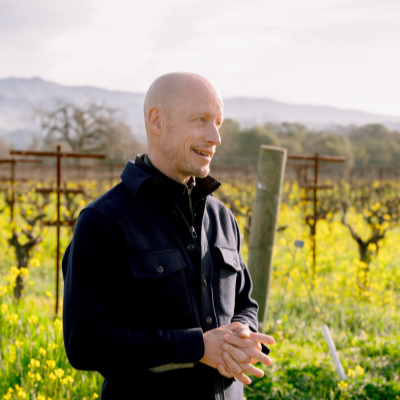
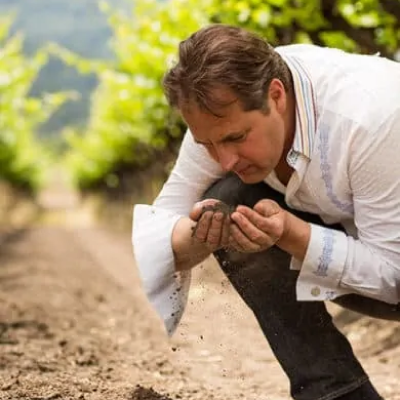
resources
- Scientific American: Pesticides Are Killing the Organisms That Keep Our Soils Healthy
- Center for Biological Diversity: New Study: Agricultural Pesticides Cause Widespread Harm to Soil Health, Threaten Biodiversity
- NBC News: A potentially cancer-causing chemical is sprayed on much of America’s farmland. Here is where it is used the most.
- SF Chronicle: How Roundup, the weed killer linked to cancer, became one of California wine’s biggest controversies
- SF Chronicle: How to tell if a wine was farmed with Roundup
- Press Democrat: Has the rise of Roundup in Wine Country made it toxic?
- Forbes: There’s No Need To Panic Over Weedkiller In Beer And Wine
- Center for Biological Diversity: EPA Finds Glyphosate Is Likely to Injure or Kill 93% of Endangered Species
- Forbes: Monarch Butterflies Suffered One Blow From Glyphosate, Then Another From Climate Change
- Bee Culture: IT’S NOT THE GLYPHOSATE, IT IS THE INERT INGREDIENTS
- Organic Wines Uncorked: California’s Organic Wave: Wine Grape Acreage Increases By 1,774 Acres in Last 12 Months – Napa Increase is 1,000+
- Esquire: What If Things Get Better?
- Common pesticides in food reducing sperm count worldwide, study says
- Frontiers in Environmental Science: Pesticides and Soil Invertebrates: A Hazard Assessment
- Frontiers in Environmental Science: Indirect Effects of the Herbicide Glyphosate on Plant, Animal and Human Health Through its Effects on Microbial Communities
- Environmental Challenges: Exposure risk and environmental impacts of glyphosate: Highlights on the toxicity of herbicide co-formulants
- Scientific Reports: Glyphosate-based herbicides reduce the activity and reproduction of earthworms and lead to increased soil nutrient concentrations
- Animal Microbiome: Glyphosate induces immune dysregulation in honey bees
- Frontiers in Ecology & Evolution: Vineyard Management and Its Impacts on Soil Biodiversity, Functions, and Ecosystem Services
- Childhood exposure to common herbicide may increase the risk of disease in young adulthood
- A Review and Update with Perspective of Evidence that the Herbicide Glyphosate (Roundup) is a Cause of Non-Hodgkin Lymphoma
- Global Glyphosate Study Reveals Glyphosate-Based Herbicides Cause Leukemia in Early Life
- Napa Green Vineyard – A Roadmap & Boots-on-the-Ground Support for Regenerative Viticulture
- Certification includes valuable resources:
- Custom Carbon Farm Plans
- Irrigation Distribution Uniformity Assessments
- Certification includes valuable resources:
- Organic Farming: Vineyard Weed Management
- UC-ANR: Mechanical Weed Control Under the Vine
- When Weeds Talk
- For The Love Of Soil: Strategies To Regenerate Our Food Production Systems
- The Hidden Half of Nature
- The Carbon Farming Solution: A Global Toolkit of Perennial Crops and Regenerative Agriculture Practices for Climate Change Mitigation and Food Security
- Regenerative Agriculture – The Climate Crisis Solution
- Nourishment: What Animals Can Teach Us about Rediscovering Our Nutritional Wisdom
- Regenerative Viticulture
- RISE Climate & Wine Symposium
- Ray Archuleta
- The Porto Protocol – Climate Talks
Napa Green VINEYARD
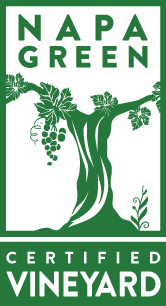
Not yet a Napa Green member? Learn more about our leading certification, including our boots-on-the-ground consulting services for regenerative farming, soil health, and irrigation efficiency.
If you have any other suggestions for tools or resources please send them to vineyard@napagreen.org. Consider joining our Regenerative Viticulture google group, and Newsletter mailing list for regular updates.

